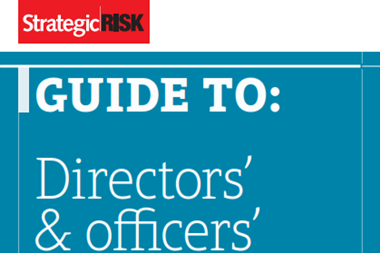by Mike Jones
Where ignorance is bliss, ‘tis folly to be wise.” The words of Thomas Gray’s poem, Ode On A Distant Prospect Of Eton College, may hold resonance for doggedly optimistic souls some 250 years after they were written, particularly when removed from their original context. Even back in 1768, when Gray put pen to paper, the concept wasn’t entirely new - centuries earlier, the Greek playwright Sophocles had conveyed similar sentiments. But can such an outlook of blinkered paradise still hold true in the modern corporate world?
Some chief executives obsess over detail, making it their business - in every sense - to find out everything they can about what is going on in the company. Others, for a variety of reasons, prefer to work with less specific information, believing that such a methodology frees mental space, allows an objective overview of the wider construct, and creates time for more considered strategic judgments.
Even the most determined and diligent, however, are faced with barriers erected by what is possible and feasible in the real world.
A small business owner with only 10 staff can reasonably struggle to know exactly what every single person in the company is doing at any particular moment. Multiply that payroll by 1,000 and the problem faced by directors of large multinationals becomes self evident.
While the difficulty of the issue is clear, however, for a chief executive to admit to a lack of knowledge, no matter the minutiae and scale of detail involved, will suffice no longer.
Take former Barclays chief executive Bob Diamond as a case in point. He heads a roll call of corporate leaders who have lost their jobs after claiming to be unaware of nefarious practices undertaken by some of those in their employ. In evidence to the House of Commons Treasury Select Committee in the wake of his departure from the bank, in July, Diamond said he had only learned the true extent of the Libor rate-rigging scandal just before it broke. Ignorance or willful ignoring?
Communicating effectively with the board is one of the main challenges faced by risk managers: no matter how loud they shout, their words of warning or sage advice often fall on unreceptive ears.
Opportunities are increasing for engagement with those at the top, but getting across the right message can be problematic even for the most articulate. Greater transparency within the corporate structure would improve matters immensely for all concerned, but a thick coating of opacity often sticks stubbornly.
There are numerous reasons for this, but one that overrides them all: there is a view that some chief executives simply will not countenance bad news. They make it known to those in their immediate circle that they don’t want to know - they will not be troubled by trouble. To them, it is not merely an anathema, it simply does not exist. When this thought process trickles down through an organisation it serves only to heighten the risks facing both the person at the top and the business itself.
All too often, the unknown unknowns to which former US defence secretary Donald Rumsfeld once referred have a place in the heart of many corporate leaders. It makes sense to them because it makes their lives more simple. For those beneath, this has implications:
• Problems need to be dealt with effectively before they get near those at the head of the business.
• If issues cannot be resolved, they should be buried wherever possible.
• The messenger - the bearer of bad news - will be shot.
A number of factors come into play at this point, most notably: who sets the tone of the company - those at the top, or its staff? The onus is quite clearly on the C-suite, a justification for their six-figure plus salaries and cherished executive status.
But where that tone is to ignore problems, how can leading executives reasonably expect their employees to act with responsibility and probity at all times when there is a ‘blind eye’ culture emanating from the top.
The UK Bribery Act has, if nothing else, precipitated a change of attitude in some boardrooms. With directors now legally responsible for the behaviour of staff around the world, they are starting to pay attention.
The act may seem pedantic and all-encompassing, but it is law nonetheless and a potentially lethal one for business. While the first corporate prosecution under the Act has yet to materialise, it has focused minds that ignorance - wilful or otherwise - is no longer acceptable and offers scant defence in legal terms.
Whether or not this change of attitude filters through to all aspects of business controlled by the boardroom remains to be seen, but a high-profile court case might just make the role of risk managers a little easier in the long term. SR












No comments yet